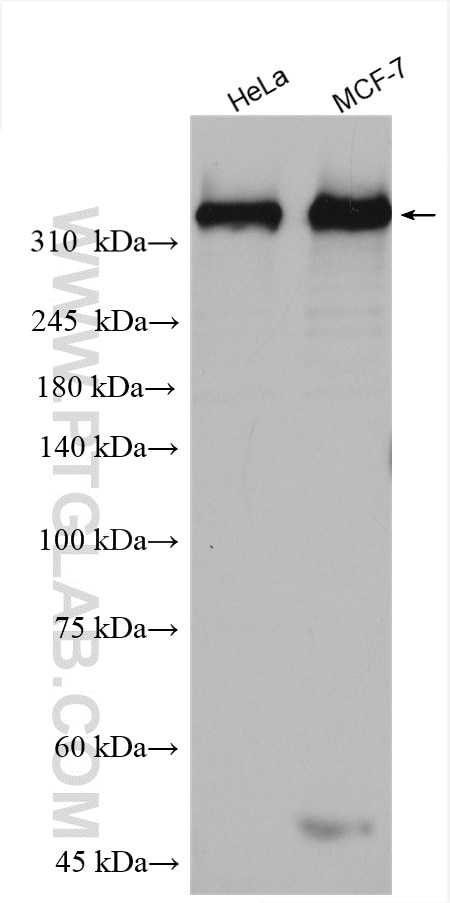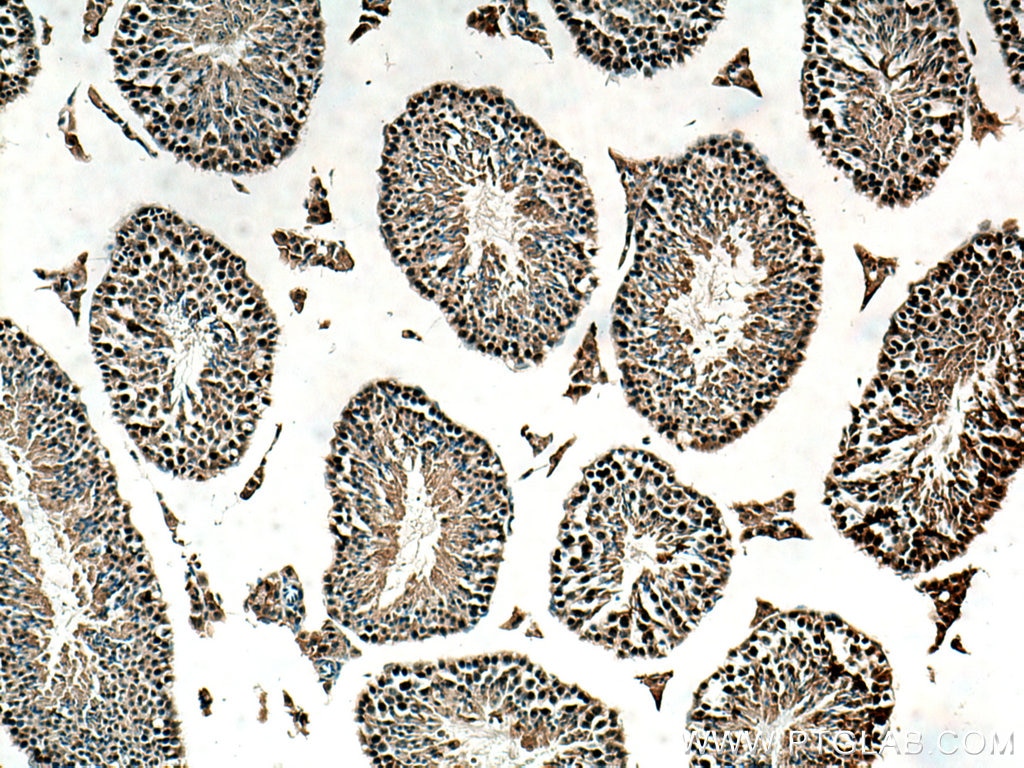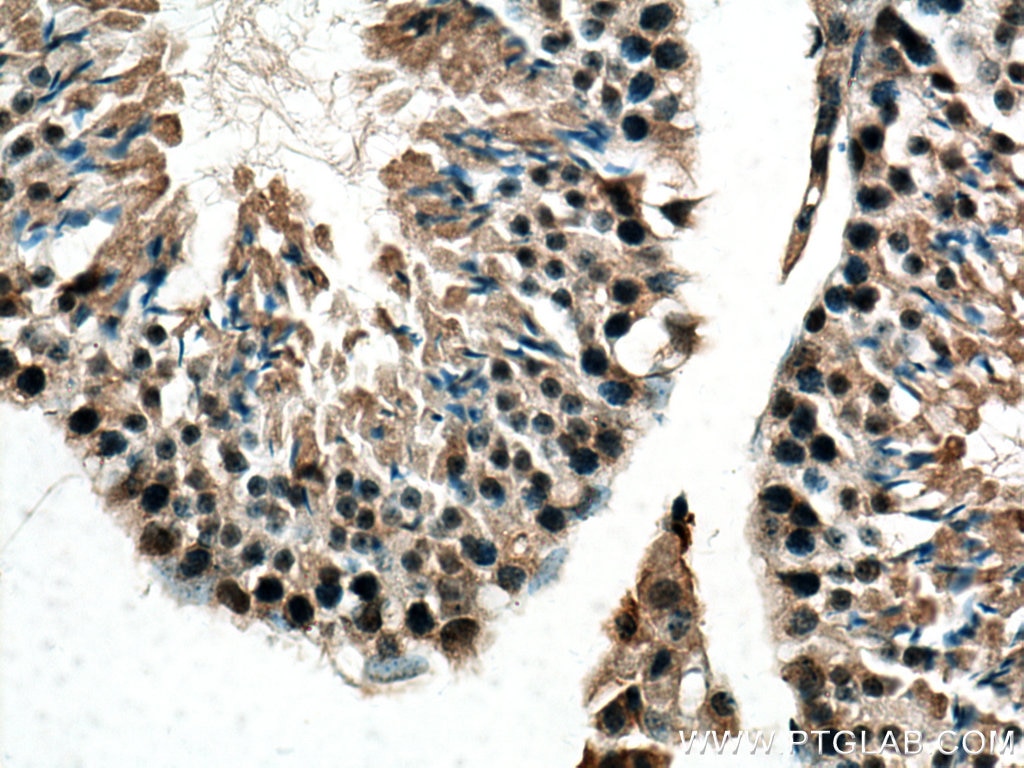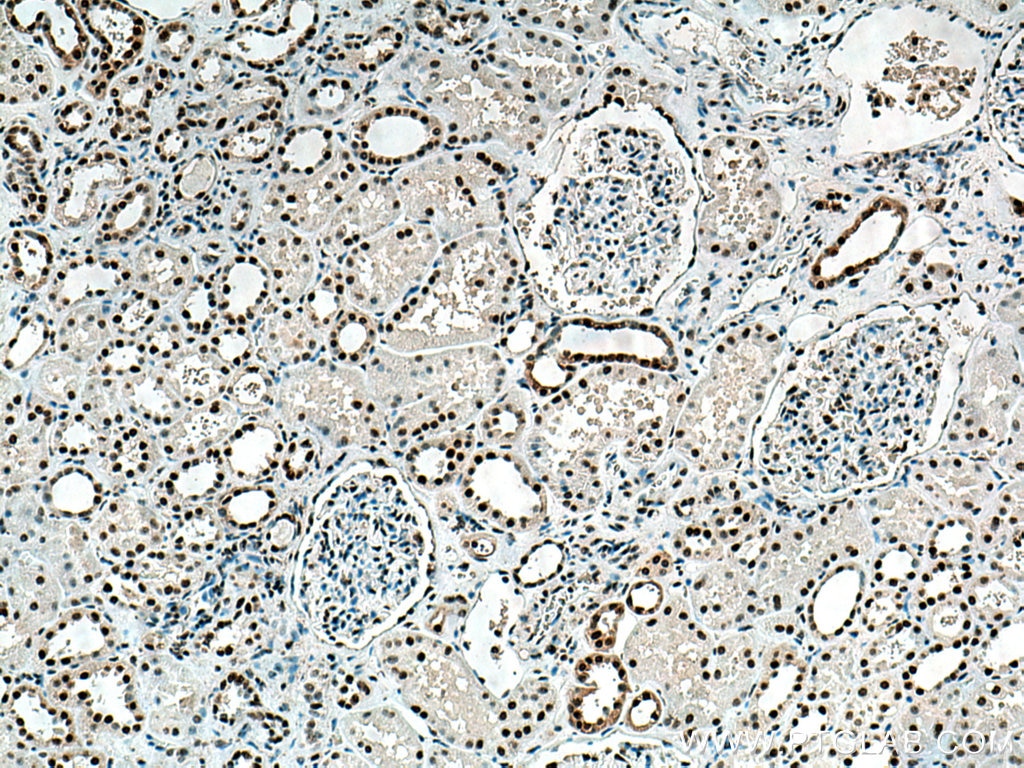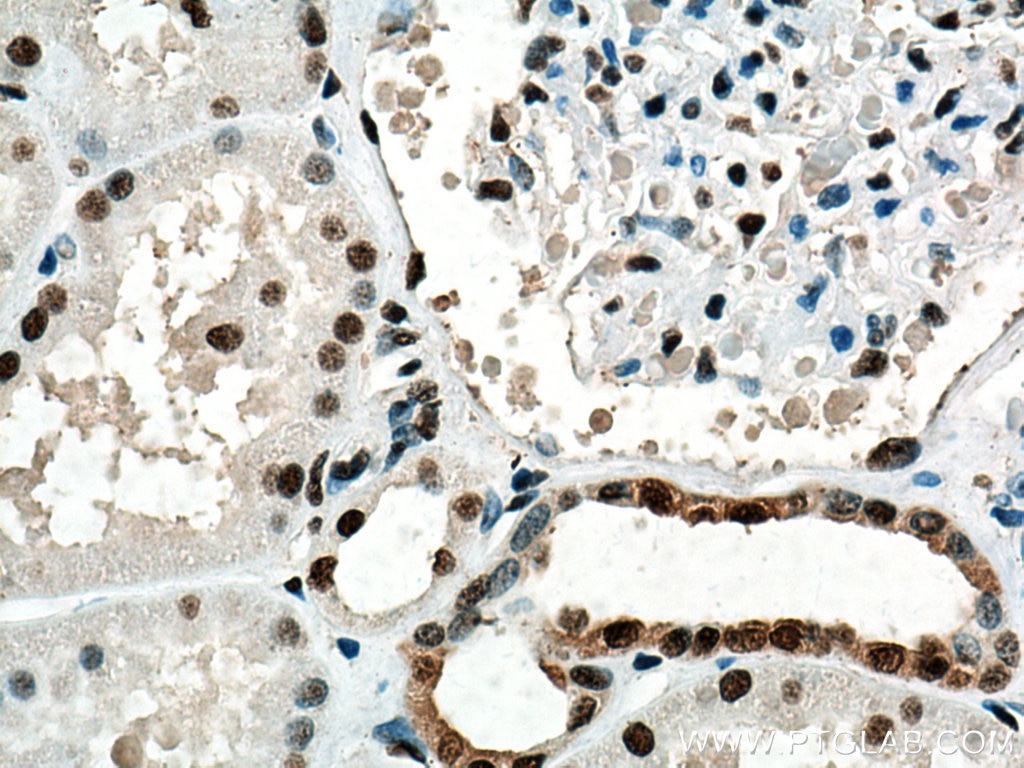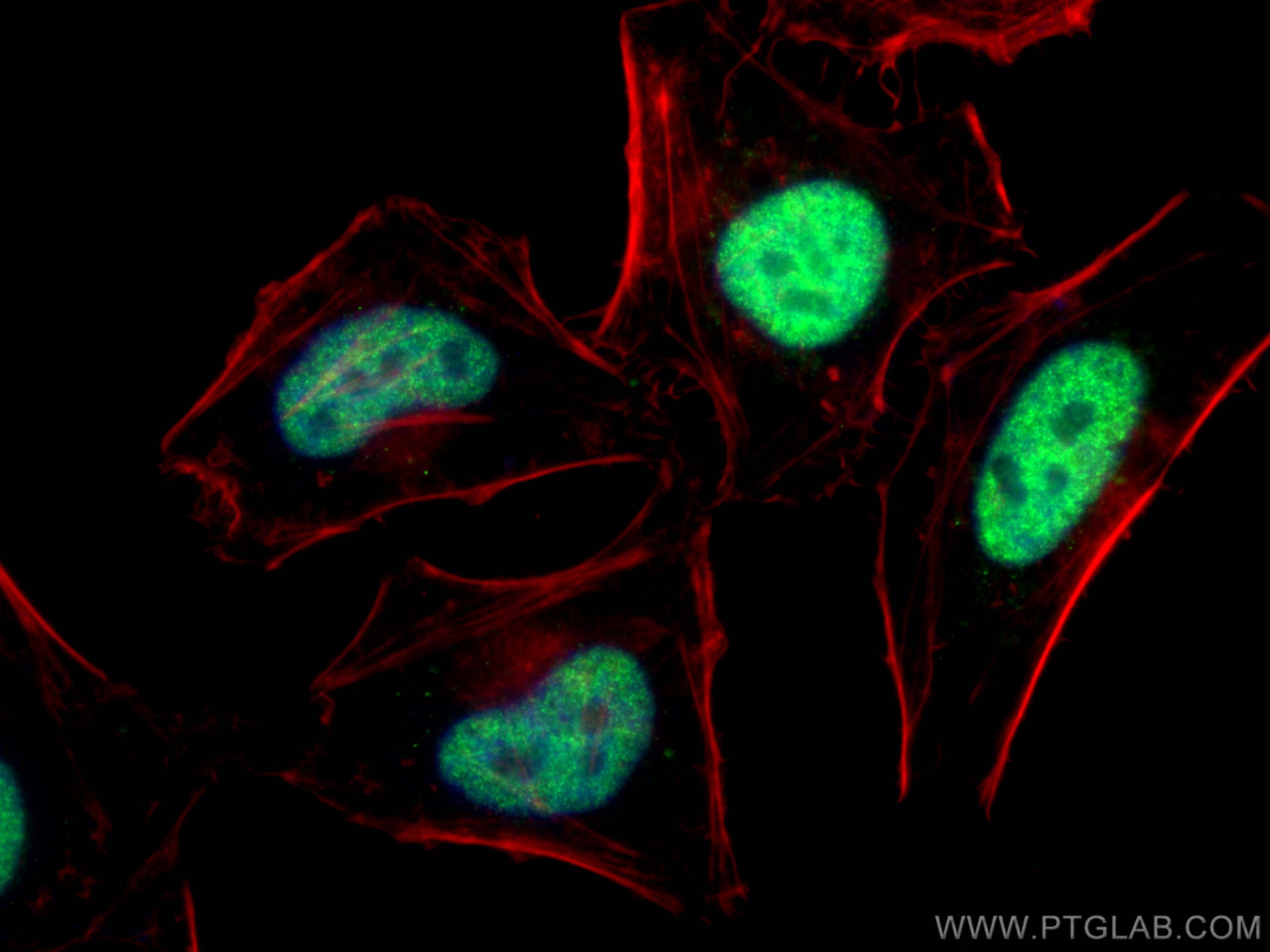DNA-PKcs Polyklonaler Antikörper
DNA-PKcs Polyklonal Antikörper für WB, IHC, IF/ICC, ELISA
Wirt / Isotyp
Kaninchen / IgG
Getestete Reaktivität
human, Maus
Anwendung
WB, IHC, IF/ICC, ELISA
Konjugation
Unkonjugiert
Kat-Nr. : 28534-1-AP
Synonyme
Geprüfte Anwendungen
| Erfolgreiche Detektion in WB | HeLa-Zellen, MCF-7-Zellen |
| Erfolgreiche Detektion in IHC | Maushodengewebe, humanes Nierengewebe Hinweis: Antigendemaskierung mit TE-Puffer pH 9,0 empfohlen. (*) Wahlweise kann die Antigendemaskierung auch mit Citratpuffer pH 6,0 erfolgen. |
| Erfolgreiche Detektion in IF/ICC | HeLa-Zellen |
Empfohlene Verdünnung
| Anwendung | Verdünnung |
|---|---|
| Western Blot (WB) | WB : 1:1000-1:4000 |
| Immunhistochemie (IHC) | IHC : 1:50-1:500 |
| Immunfluoreszenz (IF)/ICC | IF/ICC : 1:50-1:500 |
| It is recommended that this reagent should be titrated in each testing system to obtain optimal results. | |
| Sample-dependent, check data in validation data gallery | |
Veröffentlichte Anwendungen
| WB | See 1 publications below |
Produktinformation
28534-1-AP bindet in WB, IHC, IF/ICC, ELISA DNA-PKcs und zeigt Reaktivität mit human, Maus
| Getestete Reaktivität | human, Maus |
| In Publikationen genannte Reaktivität | human |
| Wirt / Isotyp | Kaninchen / IgG |
| Klonalität | Polyklonal |
| Typ | Antikörper |
| Immunogen | DNA-PKcs fusion protein Ag29100 |
| Vollständiger Name | protein kinase, DNA-activated, catalytic polypeptide |
| Berechnetes Molekulargewicht | 469 kDa |
| Beobachtetes Molekulargewicht | 350-460 kDa |
| GenBank-Zugangsnummer | NM_006904 |
| Gene symbol | PRKDC |
| Gene ID (NCBI) | 5591 |
| Konjugation | Unkonjugiert |
| Form | Liquid |
| Reinigungsmethode | Antigen-Affinitätsreinigung |
| Lagerungspuffer | PBS with 0.02% sodium azide and 50% glycerol |
| Lagerungsbedingungen | Bei -20°C lagern. Nach dem Versand ein Jahr lang stabil Aliquotieren ist bei -20oC Lagerung nicht notwendig. 20ul Größen enthalten 0,1% BSA. |
Hintergrundinformationen
PRKDC, also named as HYRC, HYRC1, DNPK1 and p460, belongs to the PI3/PI4-kinase family. PRKDC is a serine/threonine-protein kinase that acts as a molecular sensor for DNA damage. Involved in DNA nonhomologous end joining (NHEJ), PRKDC is required for double-strand break (DSB) repair and V(D)J recombination. PRKDC must be bound to DNA to express its catalytic properties. It promotes processing of hairpin DNA structures in V(D)J recombination by activation of the hairpin endonuclease artemis (DCLRE1C). It is required to protect and align broken ends of DNA. PRKDC may also act as a scaffold protein to aid the localization of DNA repair proteins to the site of damage. It is found at the ends of chromosomes, suggesting a further role in the maintenance of telomeric stability and the prevention of chromosomal end fusion. It also involved in modulation of transcription. It recognizes the substrate consensus sequence [ST]-Q. PRKDC phosphorylates 'Ser-139' of histone variant H2AX/H2AFX, thereby regulating DNA damage response mechanism. It phosphorylates DCLRE1C, c-Abl/ABL1, histone H1, HSPCA, c-jun/JUN, p53/TP53, PARP1, POU2F1, DHX9, SRF, XRCC1, XRCC1, XRCC4, XRCC5, XRCC6, WRN, c-myc/MYC and RFA2. The antibody recognizes the C-term of PRKDC.
Protokolle
| PRODUKTSPEZIFISCHE PROTOKOLLE | |
|---|---|
| WB protocol for DNA-PKcs antibody 28534-1-AP | Protokoll herunterladen |
| IHC protocol for DNA-PKcs antibody 28534-1-AP | Protokoll herunterladenl |
| IF protocol for DNA-PKcs antibody 28534-1-AP | Protokoll herunterladen |
| STANDARD-PROTOKOLLE | |
|---|---|
| Klicken Sie hier, um unsere Standardprotokolle anzuzeigen |
